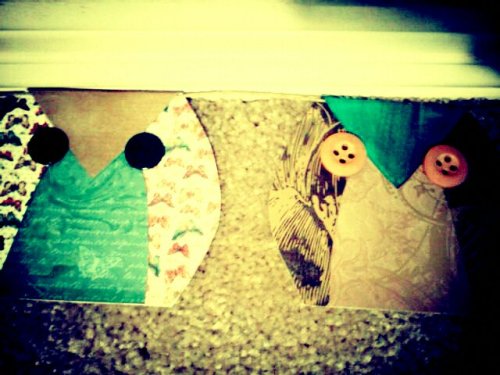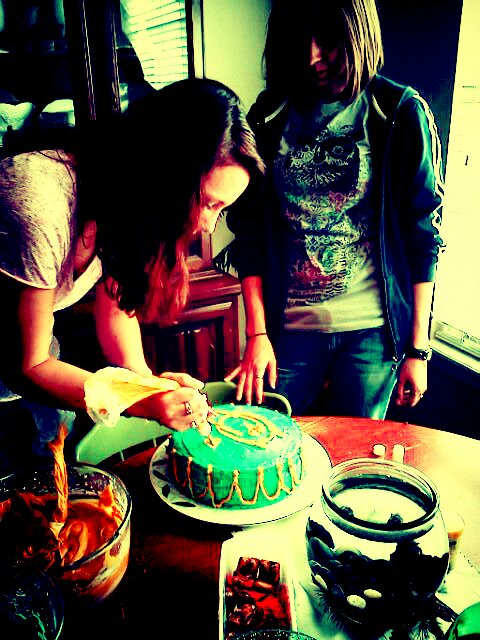This is a characterization study I did for a fiction writing class last winter. It’s part of a longer piece that at one time I thought about making into a novel, but it’s a really exhausting character to write and I’m not quite sure I can do him justice right now. Feedback would be great!
***
Neverland
Jin tossed his empty American Spirit box on the ground as he watched the girl next to him light up. He fingered the lighter in the front pocket of his favorite pair of skinny jeans, unlit cig dangling from his mouth as he sized her up: she was a couple inches shorter than he was, that was good; short, messy, dark hair that matched his own; giant plastic glasses frames that overwhelmed her face; slight figure that looked nearly pre-pubescent; scuffed brown boots over leggings and a hideous sweater with giant shoulder pads that looked like it was straight from some Paula Abdul music video: in all, the female version of himself. She stood leaning against the building, looking bored and hip and pretending not to notice him staring at her. He took a step towards her and she threw a quick glance at him.
“Hey,” he said, jerking his head upward and being careful not to smile. “Do you have a light?”
Her only acknowledgement of his greeting was to slightly raise her eyebrows and respond, “Sure.” She held the flame up for him and then resumed her pose, one arm crossed across her body, supporting the elbow of the other arm so that her cig was right by her face. She took a deep drag, blew it slowly through red lips and tilted her head slightly as she looked at him. The corners of her mouth curved into a barely-perceptible smile.
He wasn’t ready to make a move just yet. He flashed her a quick smile, just to keep her on the hook, and mentally ran down his checklist. She wasn’t Asian, so his mom definitely wouldn’t approve. She once threatened to cut him out of her will if he didn’t marry a Korean woman. That was fine – he wasn’t looking for a girl he could bring home to mama. He imagined his friends’ reaction when he introduced her to them, especially Geoff’s. Geoff was his oldest friend in Portland, and he had impeccable taste in everything – food and music and clothes and hobbies and vices, and especially women. He thought of the last few girls Geoff had hooked up with, compared them with this girl, checking off weight, complexion, style, until he was satisfied that she was the same caliber. He pictured her standing next to him in different scenarios: at the Matador drinking PBR, at a house party on Hawthorne, at some indie prog-rock show at the Doug Fir. Through every scene Liz floated like a ghost – she would see them together, Jin and this girl, being happy and sexy and cool, and she would be sorry she dumped him.
At the thought of Liz his stomach tightened into a too-familiar knot. All at once all of his senses tingled with the memories of the smell of her perfume, the springiness of her hair as he gently pulled and released the curls, the flat tones of her voice and the crack in his own when she told him it was over and he begged her not to go, the sight of her with his roommate a week later, the taste of his bile when he woke up on his bathroom floor the next morning. The taste was the strongest. It was always with him. He was constantly trying to wash that taste out of his mouth. Nothing short of whiskey could do it.
The girl shifted her weight so that her hip jutted away from him. She was getting impatient. She flicked some ashes onto the sidewalk. The white paper slowly receded toward the filter, marking the time he had left to make his move as effectively as the sand in an hour glass. Still he said nothing; he just stood there, blowing smoke in the same direction as the wind and watching it swirl madly away from him as the breeze sped it down the street. The stone that had settled in his stomach was only getting heavier. He felt tired. He forgot to carefully hold his face in its careless expression; his eyebrows lowered, his eyes unfocused as they stared through the swirling smoke into his memories. His mouth contracted slightly, his shoulders sagged under the weight that had suddenly been laid on them. He pulled at the cross-body strap of his leather satchel to get it away from his neck, and heard the rattle of pills in a bottle. It sounded impossibly loud, like they were encased in metal instead of plastic; the sound echoed through his imagination. He looked quickly at the girl to see if she had heard. She had turned slightly so her shoulder was angled towards him and was scrolling through text messages on her iPhone. There was only a tiny sliver of white paper left. She flicked the ashes again and looked back at him, one last time. He knew it was the last moment he had to talk to her. A wave of frustration overwhelmed him. It’s no good, he thought. It’ll just be the same thing. It’s always the same thing. The girl dropped the butt on the ground and walked away. Jin flicked his own half-finished smoke into the street and walked home.





















